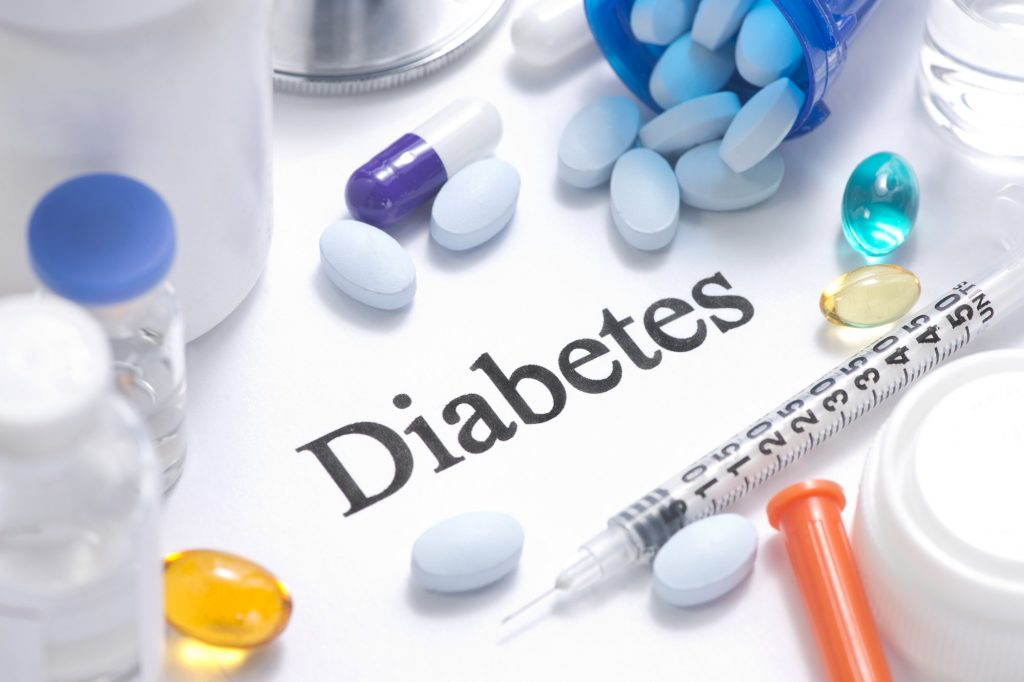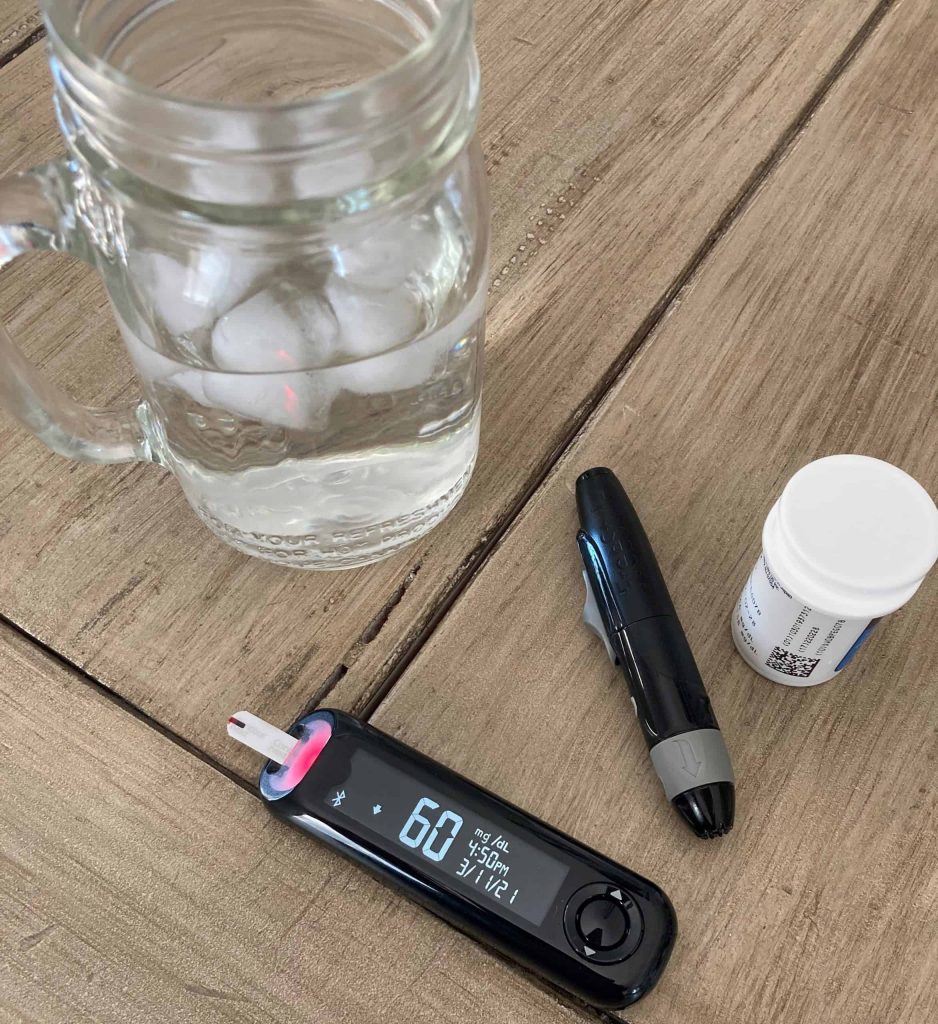How To Treat Diabetes
Posted by Mike Sonneveldt - See Editorial Guidelines (Last Updated On: Mon Feb 12 2024)

This week, Prescription Hope put together a series on diabetes for anybody who has questions about the condition. A lot of people are looking to know more about diabetes treatment, as well as learn more about diabetes management. We dedicate ourselves to helping you through providing guides on how to treat diabetes. However, we also wish to provide information on insulin therapy options and offer affordable medication for the treatment of diabetes.
In Part 1, we discussed National Diabetes Awareness Month, what diabetes is, and the signs of having the condition. Part 2 discusses the testing process and what to expect.
Today, we cover common types of insulin treatment and some quick tips to live a full life while having diabetes. After all, finding out you have the condition does not mean that you can stop living life. You have work, family, obligations, and plenty of experiences to have. A diagnosis of diabetes merely means a few extra steps during your day. You must ensure that your body handles glucose correctly and gets the energy you need.
Which Type of Diabetes Do You Have?
The type of diabetes you have makes a major difference in how your healthcare provider will approach your diabetes treatment. While insulin therapy options are often prescribed for Type 1 diabetes, different medications are prescribed for Type 2 diabetes. This includes lifestyle changes for diabetes management.

Lifestyle changes
Those lifestyle changes might include:
- Healthy Eating: Regularly schedule meals of a smaller portion size, while including more fruits, vegetables, and less red meat. Eating healthier also includes a change in the types of carbohydrates and fats. Doctors also recommend varying protein sources.
- Exercise: Doctors encourage people with Type 2 diabetes to get consistent aerobic exercise. Recommendations include getting around 150 minutes a week of moderate aerobic exercise, which might include jogging, biking, swimming, or hiking. Along with aerobic activity, recommended exercise includes 2-3 sessions of resistance training each week. Finally, being sure to limit inactivity can be extremely helpful in the body regulating and controlling blood sugar levels. In other words, take a few minutes to walk or do a light activity every 30 minutes or so. Especially if you tend to find yourself sitting in front of a computer.
- Weight Loss: Both healthy eating and exercise often lead to some weight loss. This gives your body an opportunity to properly control blood sugar. However, it does not just give your body a fighting chance with blood sugar. Weight loss remains a powerful tool in controlling cholesterol and blood pressure as well.
- Monitoring Your Glucose Levels: A Type 2 diabetes diagnoses means learning how to understand your blood glucose levels. Understanding your blood glucose is a great way to learn how to treat your diabetes. Your health care provider will give you the regimen for testing yourself. They also teach you how to know whether you are in your target range or not. Most times, testing involves a small device in the comfort of your own home. This device, a blood glucose meter, measures a single drop of blood for sugar content. Recording these measurements will help your doctor determine the best pathway forward in managing your blood glucose levels.

What If I Need Medication For Type 2 Diabetes?
When learning how to treat Type 2 diabetes, medication management is crucial. For those who have trouble keeping their blood sugar levels in the target range through diet and exercise alone, a doctor will most likely prescribe a diabetes management regimen that includes medication for diabetes that helps lower glucose levels. Some situations may even call for insulin therapy.
Your doctor may recommend a Metformin, such as Glucophage. Metformin remains the first drug recommended for those living with Type 2 diabetes. The drug works by lowering glucose production in the liver. It also improves the body’s ability to use insulin more effectively.
Various types of drugs are available which help the body operate properly. Some types of medication help the body secrete more insulin. Others make the body’s tissue more sensitive to insulin, while some, such as Onglyza, help to reduce blood sugar levels. Drugs like Jardiance work with the blood-filtering functions of the kidneys and block the return of glucose into the bloodstream.
If lifestyle changes and medications do not achieve the target range of blood sugar levels, a doctor will most likely prescribe insulin therapy.
While plenty of different types of insulin exist, you too can understand the world of insulin therapy for diabetes. Insulin therapy is among the most important when it comes to learning how to treat your diabetes.
How To Treat Diabetes With Insulin Therapy
The most common resource for treating Type 1 diabetes is the use of insulin therapy options. Doctors prescribe insulin for Type 2 diabetes when lifestyle changes and medications fail to keep blood sugar levels within the target range.

However, several different types of insulin exist. The combination of prescriptions depends on how long it takes your body to absorb it, your diet, amount of exercise, willingness to inject yourself, your age, and even how often you are willing to check your blood sugar.
Categorization of insulin relies on how fast they act, their peak, and the duration of the insulin. Doctors prescribe each insulin with a few things in mind.
- Onset: This is how long it takes for the insulin to reach the bloodstream and begin to act on the patient’s blood sugar.
- Peak: Insulin begins to act on blood sugar, and its efficiency in working on blood sugar will reach a peak, before waning off.
- Duration: The length of time between onset and finishing.
A person’s lifestyle combines with the right type of insulin to ensure proper application. Each of the types of insulin has a different range of time concerning onset, peak, and duration. Various brands of drugs will have different time frames for the three conditions.
The types of insulin to treat diabetes include:
- Rapid-Acting: Onset tends to be between 10-30 minutes. The peak occurs between 30-90 minutes, while duration lasts from 1-5 hours.
- Short-Acting: Onset happens between 30 minutes to an hour. The peak can happen from 1-5 hours depending on the drug, with duration lasting from 2-8 hours.
- Intermediate-Acting: Typically, onset occurs from 1-2 hours, with the peak from 4-12 hours and duration from 18-24 hours.
- Long-Acting: Onset will take from 30 minutes to 2 hours depending on the brand of insulin. Peak occurs from 6-8 hours for some drugs, while others provide a consistent level with no peak. The duration for long-acting lasts anywhere from 20 hours up to 42 hours. This depends on the brand of drug used.
- Pre-Mixed: A pre-mixed insulin combines selected amounts of intermediate-acting and short-acting insulin. This creates a faster-acting insulin with a longer duration. The onset for pre-mixed starts 10-30 minutes after application. The peak results 30 min to 12 hours after taking, while the duration can last up to 24 hours.
Insulin timing depends on the type of insulin used. Recommendations state to time your insulin around meals. The goal is to take your insulin so it begins acting at the same time glucose from your food reaches your system. However, prescriptions for long-acting insulins, such as Levemir, call for administering once or twice a day.

You Can Do It
Getting diagnosed with diabetes seems like a major setback. Americans are extremely busy, and taking more medication or injecting insulin several times a day seems like a massive burden. But you can do it. Hundreds of millions of people live with diabetes each day. They learned how to treat their diabetes, helping them live a full life without slowing them down.
Have a discussion with your doctor, get a plan in place, and take advantage of the multitude of resources available to you. Trusted organizations such as the CDC, National Institute of Diabetes and Digestive and Kidney Diseases, American Diabetes Association, and Prescription Hope provide tons of resources for both those with diabetes and their loved ones.
The Cost of Insulin and Medications To Treat Diabetes
Perhaps you have done your research, and the price of insulin and various medications scares you. Maybe you have been searching for affordable medications for diabetes and have not found what you are looking for. Even with insurance, Medicare, Medicaid, and various programs, diabetes treatment can be a costly diagnosis. The NIDDK reports that a person with diabetes will spend, on average, $16,752 a year on health care. This is twice the cost of health care for a person without diabetes!
We At Prescription Hope desire to help you with the cost of diabetes treatment. For $60.00 per month, per medication, our customers can have peace of mind when dealing with the high costs of prescription drugs. Our list of medications includes over 1,500 drugs, with plenty of options for low-cost drugs when dealing with diabetes.
Not only that, but if you are looking for a diabetes treatment guide or diabetes management, you can take a look at our blog to find what you need. If you are looking for affordable medication for diabetes, please take a look at our website to see how we can help.
How To Get Reasonably Priced Diabetes Medication and Insulin
When your doctor helps you determine the right insulin therapy options or diabetes prescription regimen, simply go to our website and become familiar with our services. Then, fill out our online enrollment form. After you submit your enrollment form, Prescription Hope will determine based on the information provided whether we can pre-qualify you for affordable medication for diabetes.
After you qualify and we receive all of the requested paperwork from you and your healthcare provider, delivery of your first order of medication typically happens within 2-4 weeks. Plus, once you receive approval, we manage your order refills!
Delivery of your medications typically occurs in a 90-day supply, directly to your home or healthcare provider’s office, depending on the requirements of the pharmaceutical company that ships your medication.

Prescription Hope
Prescription Hope dedicates ourselves to helping those with diabetes get their insulin therapy options and other medications they need at a reasonable monthly rate per medication. We desire for every member to live without the stress and worry of paying too much for insulin and other vital prescriptions. No one should have to choose between their medication or bills.
We provide a simple, consistent monthly rate of $60.00 per medication for over 1,500 medications. This means that not just people with diabetes can benefit from what we offer.
If you received a diabetes diagnosis and wish to lower your insulin and medication costs, then please visit us at www.PrescriptionHope.com to learn more about how we can save you money every month!

